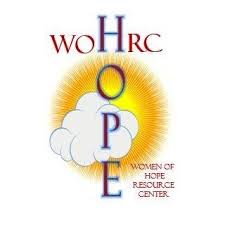Atco, New Jersey, United States
Women of HOPE Resource Center
Unclaimed
Unclaimed
This provider hasn’t verified their profile’s information. Are you the owner of this center? Claim your listing to better manage your presence on Recovery.com.
Insurance Accepted
This center accepts insurance, exact cost can vary depending on your plan and deductible.

Contact Women of HOPE Resource Center
Connect with Women of HOPE Resource Center by calling them directly.
Are you the owner of this center?
Claim this center
About Women of HOPE Resource Center
Women of Hope Resource Center (WOHRC) is a Christian nonprofit in South Jersey that helps women, men, and families facing tough challenges like addiction, trauma, homelessness, and substance use. Their mission is to walk alongside people in need, offering personal support and connecting them with helpful services. What makes them unique is their faith-based, gender-specific care and lasting support.
Therapies and Support
WOHRC offers outpatient addiction treatment, counseling for co-occurring disorders, and support groups. They also provide one-on-one mentoring, workshops, and seminars. These services are designed to help people heal inside and out—mentally, emotionally, and spiritually. Self-care and personal growth are important parts of their recovery programs.
A Safe Space for Healing and Growth
The center creates a caring, home-like space where people can feel safe and supported. WOHRC offers guidance, listens with compassion, and walks with each person through their journey. If a need can't be met in-house, they help connect people with other trusted community resources. Everyone is treated with kindness, dignity, and hope.
Read More

Insurance Accepted
Provider's Policy:To make sure you fully understand your benefits, we suggest reaching out to your insurance carrier directly. We're here to help with any questions you might have. Feel free to explore our website for more information on insurance options that might be right for you.

Medicaid
<p>Signed into law through the Social Security Act in 1965, Medicaid is a United States government program that offers health insurance to those with limited income.</p>
See rehabs that accept this provider.
Medicare
A simple coverage option for Americans without health insurance and disabilities. Many private insurances incorporate Medicare to expand its coverage options.
See rehabs that accept this provider.
Center Overview
Men and Women
Men and women attend treatment for addiction in a co-ed setting, going to therapy groups together to share experiences, struggles, and successes.
Treatment Focus
You can admit to this center with a primary substance use disorder or a primary mental health condition. You'll receive support each step of the way and individualized care catered to your unique situation and diagnosis.

Care Options







Treatment
Specializations
Alcohol
Using alcohol as a coping mechanism, or drinking excessively throughout the week, signals an alcohol use disorder.
Co-Occurring Disorders
A person with multiple mental health diagnoses, such as addiction and depression, has co-occurring disorders also called dual diagnosis.
Drug Addiction
Drug addiction is the excessive and repetitive use of substances, despite harmful consequences to a person's life, health, and relationships.
Gambling
Excessive, repetitive gambling causes financial and interpersonal problems. This addiction can interfere with work, friendships, and familial relationships.
Trauma
Some traumatic events are so disturbing that they cause long-term mental health problems. Those ongoing issues can also be referred to as "trauma."
Approaches
Spiritual Emphasis
Spirituality connects patients to a higher power and helps strengthen their recovery, hope, and compliance with other treatment modalities.
Individual Treatment
Individual care meets the needs of each patient, using personalized treatment to provide them the most relevant care and greatest chance of success.
Therapies
1-on-1 Counseling
Patient and therapist meet 1-on-1 to work through difficult emotions and behavioral challenges in a personal, private setting.
Life Skills
Teaching life skills like cooking, cleaning, clear communication, and even basic math provides a strong foundation for continued recovery.
Conditions We Treat
Anxiety
Anxiety is a common mental health condition that can include excessive worry, panic attacks, physical tension, and increased blood pressure.
Depression
Symptoms of depression may include fatigue, a sense of numbness, and loss of interest in activities. This condition can range from mild to severe.
Gambling
Excessive, repetitive gambling causes financial and interpersonal problems. This addiction can interfere with work, friendships, and familial relationships.
Trauma
Some traumatic events are so disturbing that they cause long-term mental health problems. Those ongoing issues can also be referred to as "trauma."
Substances We Treat
Alcohol
Using alcohol as a coping mechanism, or drinking excessively throughout the week, signals an alcohol use disorder.
Co-Occurring Disorders
A person with multiple mental health diagnoses, such as addiction and depression, has co-occurring disorders also called dual diagnosis.
Drug Addiction
Drug addiction is the excessive and repetitive use of substances, despite harmful consequences to a person's life, health, and relationships.
Aftercare
Experience
Special Considerations
Gender-specific groups
Patients in gender-specific groups gain the opportunity to discuss challenges unique to their gender in a comfortable, safe setting conducive to healing.
We love hearing about your treatment experience
Help individuals and families seeking treatment by sharing your first-hand experience with this treatment provider. Review Guidelines.







